- Home
- Linda Howard
Cry No More Page 30
Cry No More Read online
Page 30
She’d already had the fight of her life, she thought. And it had lasted for ten long years. “Your attorney didn’t know. The birth certificates were forged. The woman who forged them is the one who kept the records. I don’t expect you to take my word for it; I brought copies of everything.” She leaned down and picked up the briefcase, opened it, and handed a sheaf of papers across to them. Lee took the papers and rapidly thumbed through them. A rough sound of denial rumbled in his throat.
Her hands trembling, Milla drew out two more documents. “These are the papers where David and I both relinquish our parental rights to Justin—Zack—to you.”
Rhonda and Lee both froze, staring at the papers in her hand as if they couldn’t believe what she’d just said. Milla tamped down on the agony rising in her throat, fought for control. Just a little while longer. . . .
“There are no conditions. To take him from you would be devastating to him, and we l-love him too much to do that. What you tell him about us, if you tell him, is totally up to you. You’ve raised him, you love him, you know him better than anyone else on earth. Does . . . does he know he’s adopted?”
Mutely Rhonda nodded. Lee said, “But he’s never asked any questions.”
He was happy, healthy, well adjusted, and secure in his parents’ love for him. He felt no need for anything else, Milla thought. One day he might ask, but only out of curiosity.
She took a thick manila envelope from the briefcase and also handed it over. “This is personal information about David and me, our medical histories, blood types, anything you might need if there’s some medical emergency with Zack. There are phone numbers, addresses, and if either of us moves or changes numbers we’ll send the information to you. Our parents’ addresses are also included. There are some pictures, if . . . if he’s ever interested, and you decide to tell him. Newspaper clippings about what happened. I don’t want him to ever think we didn’t want him.” She dragged in oxygen. “His father has a genius IQ, and is one of the best men I’ve ever met. He’s blond and blue-eyed; Zack favors him. We’re both healthy, no genetic problems that we know about.”
Dear God, how much longer could she hold out? Rhonda had both fists pressed to her mouth, and tears ran down her cheeks as she stared at Milla. Lee was audibly gulping as he fought for composure. Diaz, beside her, was a still, dark presence. She hadn’t looked at him, hadn’t glanced once at him.
Raggedly she continued, “I hope, one day, he’ll want to know about us, meet us. But if he doesn’t, don’t feel you have to look over your shoulder. We’ll never contact you except for updates on necessary information, if needed. You’re his parents. If you decide never to tell him about us, we’ll accept that.” That was it. She couldn’t go on any longer. She surged to her feet and held out her hand. “Thank you for loving him.”
Lee took it, his chin trembling, and wordlessly folded his other hand over hers. Diaz stood, too, bending down to close the briefcase and lift it.
Rhonda jumped up. She was sobbing so hard she could barely speak. “Wait—you were looking . . . Would you like some of his pictures? To take with you?”
27
Somehow Milla said good-bye to them, shook hands, made it out to the Jeep clutching one of the photographs; others were in the briefcase that Diaz carried. She sat frozen as he drove her away from her son’s life, her gaze fixed straight ahead, her face as still as a statue’s. She’d done it. Somehow, she had managed to hold together. She had given her son away, and she felt as if there were a great gaping wound inside her from which her life’s blood was pumping. Pain was already gnawing away at her control, as great a beast as it had been when Justin was first taken from her; the quality of the pain was different, more poignant—and more bitter, because she’d been forced to this point as the years had crept inexorably past—but the beast itself was the same.
There was no hope left. She couldn’t turn back the years and have Justin back as a baby, couldn’t fill her walls with pictures of him as he grew. He was someone else’s child now, and she had to live the rest of her life without him.
In a remote, almost casual tone, Diaz said, “Nothing much impresses me, but that was the bravest thing I’ve ever seen.”
She felt rage building inside her, like steam forming in a kettle as water heated. Helpless to stop it, she felt it build and build and build, rising up, choking her; her vision blurred with red haze and she heard an animal sound coming from her throat. Then the rage burst free, and despite the seat belt holding her in, she launched herself across the console at him, screaming and punching him, slapping any part of him she could reach. “Shut up! You bastard, you tried to keep me from finding him! I could kill you, I hate you—”
He jerked the steering wheel to the right, pulling them out of traffic and to the side of the street while he fended her off with his right arm. His features were blurred by her fury and tears, but she could see enough to tell that his expression hadn’t changed, that he was still so damned untouched—
He put the gear in park, then just sat while she pounded on him. The sounds coming from her had deteriorated into wordless screaming, the raw, wounded sound of unbearable pain that started from deep inside and tore its way out of her throat. She wanted to destroy something, she wanted someone else, anyone else to feel just a portion of what she was feeling. She felt as if she would burst from the force of it, as if her heart would give out under the immense pressure.
Then she collapsed forward on herself, sobbing so hard she couldn’t draw a breath. She hadn’t known she could cry like this, not even in the early, desperate days. She’d had a goal then, a cause. Now she had nothing. Her voice broke and she choked, began coughing convulsively. Diaz seized her shoulders and hauled her upright, propped her against the door. Distantly she heard him say “Drink this,” and he put a bottle of water to her lips. She managed to swallow a sip, though she was vaguely surprised at how difficult swallowing was with her throat so raw and swollen.
The storm passed as abruptly as it had come on, and she slumped in exhaustion, her eyes closing. She heard Diaz on the phone, talking quietly, but she was too numb to listen. She wanted to go to ground somewhere and die, because there was no way she could live with this pain.
She didn’t die. Instead she sank into a stupor, so emotionally drained that she was unaware of anything except being on the move again, Diaz driving in silence. She thought they stopped once, maybe twice, but she wasn’t certain. She slept, starting awake occasionally to stare out the windshield in total blankness, not knowing where they were now or where they were going, not caring, not even fully comprehending.
Darkness fell, and the headlights of oncoming traffic hypnotized her to sleep again. She roused when he stopped the Jeep and got out, watching dully as a man got out of the car parked beside them and handed something to Diaz, then gave a tiny salute and got back into his car and left.
Diaz came around to the passenger side and opened the door. “Come on.”
Milla got out, moving slowly, like a very old woman. They were parked at what looked like the tiny back porch of a small clapboard house. A cold wind whipped at her legs, went through her clothes. The ground beneath her feet was fine and gritty, and there was a strange roaring sound in her ears.
She had no idea where they were. She said, “I have a six o’clock flight,” and was surprised at how raspy her voice was.
“You didn’t make it,” Diaz said briefly, taking her arm and leading her up the three steps to the door. He opened the storm door and held it open with his body while he unlocked the wooden one, pushing it wide and reaching in to feel for a light switch. He found it, and bright light from an overhead fixture made her blink. He ushered her inside and she found herself standing in a smallish kitchen. Permeating everything was a peculiar smell that was somehow familiar, a not unclean smell, just . . . peculiar.
Diaz went back outside and she stood there, too tired and beaten and apathetic to care where he was going. She heard doors slam; then he
was back, carrying both his duffel and her suitcase.
He walked through the kitchen into another room and more lights came on. Milla closed her eyes and waited for him to come back. He always came back. . . .
He took her arm and led her forward. “I figure you need the bathroom,” he said.
Vaguely surprised, she realized she did. The bathroom she found herself standing in had green and gray ceramic tile on the floor and in the rather large shower. Diaz closed the door and let her have the necessary privacy, but he must have been standing right outside, because as soon as she began washing her hands, he opened the door again.
“I’ll put on some soup to heat,” he said, and led her back to the kitchen.
She sat at the table and looked vaguely around while he poked through the cabinets and found what he needed. After a while she said in her croaky voice, “Where are we?”
“The Outer Banks.”
For a moment she had no idea where that was. A tiny frown knit her brow as she tried to get her tired mind to sort through the available information. Finally she remembered that she was in North Carolina, and the Outer Banks was part of the coast. In another moment, she realized that the roaring sound was the ocean. They were right on the beach. The peculiar smell she’d noticed was the tang of salt water.
Diaz set a bowl of steaming vegetable soup and a glass of milk in front of her. Dipping a bowl full for himself, he sat down across from her and dug in.
Cautiously Milla dipped her spoon into the soup and sipped at the broth. It burned her raw throat, but at the same time the heat felt good. She had never before in her life lost her appetite, but the very act of lifting the spoon was almost too much effort and she had to make herself continue. She kept her head down, her gaze focused on the bowl of soup. She couldn’t let herself look at anything else, think about anything else; right now she was numb, but the pain waited just on the edge of her consciousness, ready to consume her again.
When she was finished, Diaz cleaned the kitchen, then led her back to the bathroom, where he’d laid out a couple of towels and washcloths. “Strip,” he ordered. “Get in the shower. I’ll bring your nightgown.”
If she’d had more energy, she might have argued with him, or even locked the door while he was gone. Instead she ran the water in the sink and obediently took off her clothes while it was getting hot, then turned off the faucet and stepped into the shower. The glass door was clear, which gave no privacy at all. She couldn’t bring herself to care.
She had just finished drying off when he returned with his hands full, carrying everything she could possibly need. He set her toiletries and cosmetics on the vanity, put her blow dryer in one of the cabinet drawers, laid her nightgown on the vanity stool.
She put on the nightgown, then sat down on the stool and stared at the toiletries, trying to remember her normal skin care routine. “This one,” Diaz said, nudging the toner forward. He had watched her get ready for bed on more than one occasion, leaning against the bathroom door frame and waiting patiently enough, but watching her with narrowed, hungry eyes.
Lethargically she poured toner on a cotton pad and wiped it on her face. Diaz pushed the moisturizer forward, and obediently she smoothed the cream on her face and neck. Then he leaned down and lifted her in his arms, carried her out of the bathroom and down the short hall to a bedroom. The bedside lamp was on, the covers turned down. He placed her between the sheets, pulled up the covers, and turned off the lamp. “Good night,” he said as he walked out and closed the door behind him.
She slept immediately, as if her brain simply switched off, and several hours later woke crying. She touched the tears on her face and stared at them in bewilderment for a moment, then memory rushed back and brought with it that clawing pain.
The agony was so sharp she couldn’t lie in bed. She got up and paced the small bedroom, her arms folded over her middle as if she could hold the pain in, but the same deep, tearing sounds she’d made earlier tore free from her chest and throat. She almost howled in her grief, and for the first time understood why in some cultures the bereaved tore out their hair and ripped their garments. She wanted to smash the furniture, throw something. She wanted to run screaming down the beach and throw herself into the ocean. Drowning had to be less painful than this.
Eventually exhaustion and that odd numbness claimed her again, and she fell back into bed.
Morning dawned clear and slightly warmer. She got out of bed, dressed, and looked out the window. Now that it was daylight, she could see the Atlantic looming just over a sand dune, all that water seeming to come right at her in an endless procession of waves. There was a row of houses much like this one marching up and down the beach; some were newer and bigger, others were older and smaller. During the summer the beach would be crowded with vacationers, but this morning it was devoid of people. After a while, she trudged to the kitchen.
Diaz had made coffee. He himself was nowhere in sight, nor was the Jeep parked outside. There was a note on the kitchen table that said, “Gone for food.”
Milla poured herself a cup of coffee and walked about the small house, familiarizing herself with it. Besides the kitchen, bathroom, and her bedroom, there were two more bedrooms, equally small. The one Diaz had slept in was right next to hers, the pillow dented, the bed unmade. The kitchen was an eat-in, with a laundry alcove off it that was just large enough to fit in a washer and dryer. In front was the living room, filled with cozy, overstuffed furniture and a twenty-five-inch television. Across the front of the house was a screened porch with a set of white wicker furniture with colorful floral cushions. From the porch she looked straight out over the ocean, blue today from the reflected sky. The morning air was cold, and after a few minutes she went back inside to sit at the kitchen table and drink another cup of coffee.
Desolation filled her. For over ten years she’d kept herself focused; there had been pain, yes, but also purpose. Now there was nothing.
She would have to get rid of the rocks in her house. Justin wouldn’t be needing them.
She had known for over three years now that even if she found him, she would still never have him. On his seventh birthday, she had awakened to the realization that he was irrevocably gone. Even if she found him that very day, his life and security were centered around other people, and to take him away from that would be devastating to him. Because she loved him, she knew she would have to let him go. She still had to search, she had to make certain he was okay . . . but he was gone. He would never be hers again.
She had hoped she would find comfort in the fact that he’d had a good life, good parents. And she did—she did—but the grief was still so immense she didn’t know how she could survive it.
It was as if he had died, as if she had lost him all over again. What she had done was irrevocable. David had been aghast when she told him what they had to do. He’d wept, he’d raged—all the stages she had gone through in private. “We’ve just found him!” he’d shouted. “How can we do this? Without even seeing him, talking to him?”
“Look at his face,” she’d said gently, once more directing him to the photographs she’d taken. “He’s happy. How can we take that away from him?”
“We could still meet him,” David had insisted, desperate. “He doesn’t have to know who we are. I—damn it, Milla, I agree we can’t totally disrupt his life by taking him away from these people, but we finally have a chance now to—”
“No. If we show up without giving his adoptive parents this security of knowing he’s irrevocably theirs, what are they likely to do? I know what I’d do. I’d take him and run.”
“But we could see him,” he pleaded, worn down by the truth in her argument.
“That will have to be up to his parents. It has to be. This is what’s best for Justin, not what’s best for us. David, you have a family you love. You have to think about them, too. We can’t tear up everyone else’s life because of our own selfishness.”
“Is it selfish to want to see
our son? You, at least—you’ve sacrificed your own life to look for him, you’ve done so much more than I ever could. How can you not want to at least talk to him?”
“I do,” she said fiercely. “I want to grab him and never let him go. But it’s too late now, it’s been too late for years. We aren’t his family now. If we ever know him, it’ll have to be his choice. Otherwise the damage to him will be terrible, and I haven’t fought so hard and so long to find him just so I would be happy. I had to know if he was safe, if he was loved. He is.” She swallowed and repeated, “He is.”
In the end, his vision blurred with tears, David had signed the papers, then scribbled a handwritten letter to Justin telling him how much he loved him and hoped that one day they’d meet, and given the letter to Milla to put in with the other papers, which included her own letter.
She only hoped that one day Justin—Zack—would read the letters and be curious enough about David and her to get in touch. She hoped the Winborns wouldn’t destroy the papers. She didn’t think they would, especially the legal papers, but they might well put them in a safe-deposit box and never tell Zack about his natural parents. She hoped not, but she wouldn’t blame them if they did. She knew how fiercely she herself had fought to protect him, so why should she expect them to do less?
She had accomplished what she’d set out to do, all those long years ago. She had done it knowing that she would be left with ashes. She just hadn’t known the taste of them would be so bitter in her mouth.
The kitchen door opened and Diaz came in, carrying some paper bags. She’d been so preoccupied that she hadn’t heard him drive up. He gave her a sharp look but didn’t say anything, instead concentrating on putting up the groceries he’d bought.

 Mr. Perfect
Mr. Perfect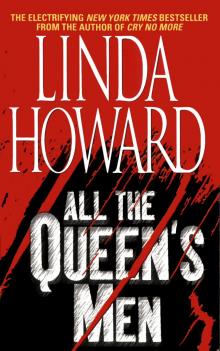 All the Queen's Men
All the Queen's Men Midnight Rainbow
Midnight Rainbow Diamond Bay
Diamond Bay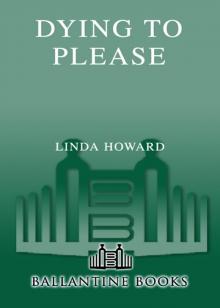 Dying to Please
Dying to Please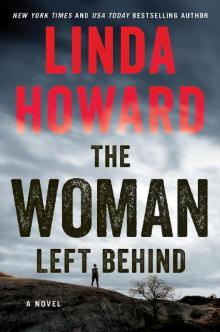 The Woman Left Behind
The Woman Left Behind Come Lie With Me
Come Lie With Me Drop Dead Gorgeous
Drop Dead Gorgeous To Die For
To Die For Ice
Ice Overload
Overload Shadow Woman
Shadow Woman Veil of Night
Veil of Night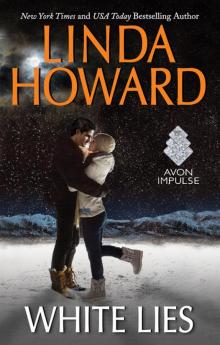 White Lies
White Lies Son of the Morning
Son of the Morning The Complete Mackenzies Collection
The Complete Mackenzies Collection Lake of Dreams
Lake of Dreams DeathAngel
DeathAngel Loving Evangeline
Loving Evangeline Burn
Burn Mackenzie's Magic
Mackenzie's Magic Against the Rules
Against the Rules Burn: A Novel
Burn: A Novel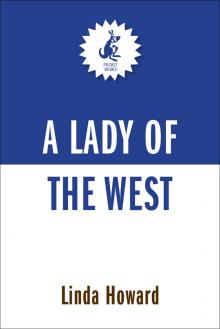 A Lady of the West
A Lady of the West Almost Forever
Almost Forever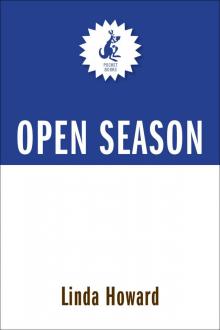 Open Season
Open Season Now You See Her
Now You See Her Prey
Prey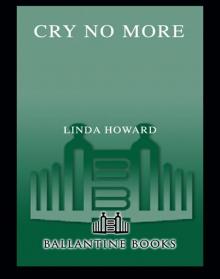 Cry No More
Cry No More Sarah's Child
Sarah's Child Angel Creek
Angel Creek Death Angel
Death Angel Kill and Tell
Kill and Tell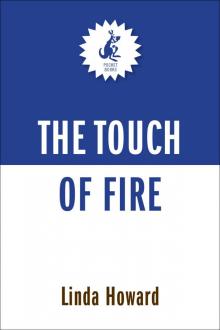 The Touch of Fire
The Touch of Fire Raintree: Inferno
Raintree: Inferno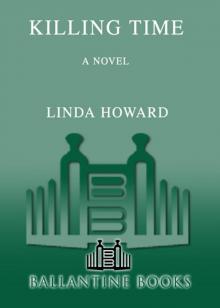 Killing Time
Killing Time Cover of Night
Cover of Night Tears of the Renegade
Tears of the Renegade Heartbreaker
Heartbreaker The Cutting Edge
The Cutting Edge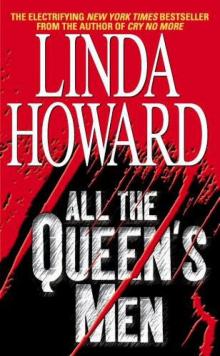 All The Queen's Men cs-2
All The Queen's Men cs-2 Veil of Night: A Novel
Veil of Night: A Novel Blood Born
Blood Born The Complete Mackenzie Collection
The Complete Mackenzie Collection Mackenzie's Magic m-4
Mackenzie's Magic m-4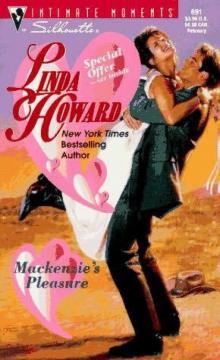 Mackenzie's Pleasure m-3
Mackenzie's Pleasure m-3 Raintree
Raintree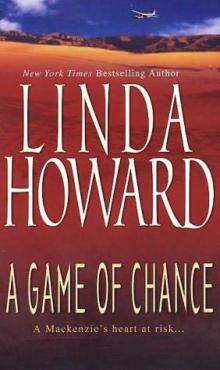 A Game Of Chance m-5
A Game Of Chance m-5 Prey: A Novel
Prey: A Novel Lethal Attraction: Against the RulesFatal Affair
Lethal Attraction: Against the RulesFatal Affair The Raintree Box Set: Raintree: InfernoRaintree: HauntedRaintree: Sanctuary
The Raintree Box Set: Raintree: InfernoRaintree: HauntedRaintree: Sanctuary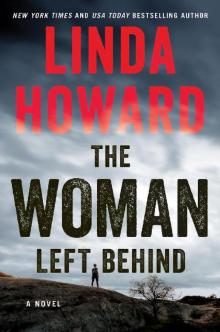 The Woman Left Behind: A Novel
The Woman Left Behind: A Novel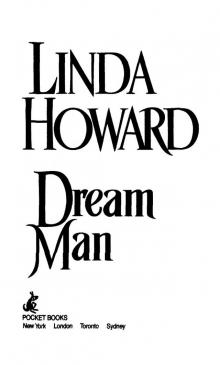 Dream Man
Dream Man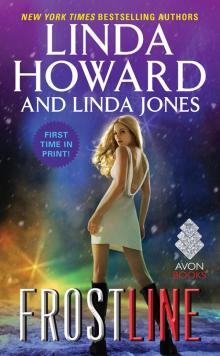 Frost Line
Frost Line Kill and Tell cs-1
Kill and Tell cs-1 Shadow Woman: A Novel
Shadow Woman: A Novel Mackenzie's Mission
Mackenzie's Mission Strangers in the Night
Strangers in the Night Running Blind
Running Blind